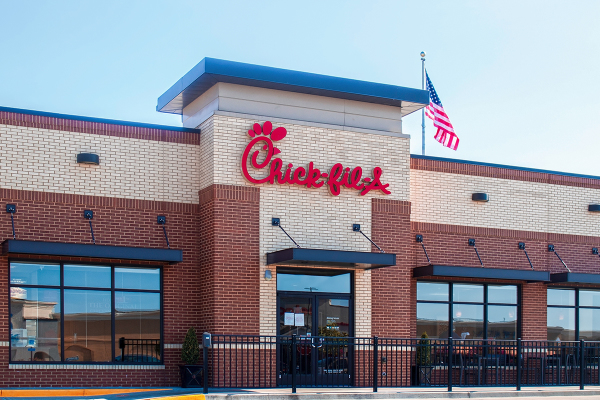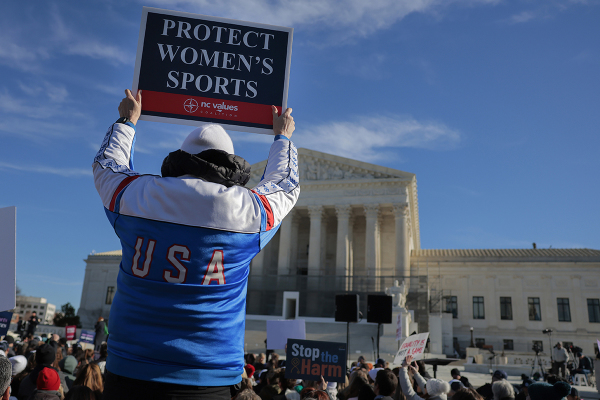Black and white pastors share stories of racism, talk reconciliation at Museum of the Bible
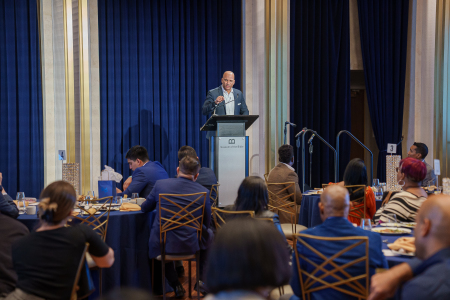
WASHINGTON — Dozens of pastors and faith leaders, mostly of black and white descent, discussed firsthand stories of racism and inequality during a dinner event spearheaded by Virginia megachurch Bishop Derek Grier at the Museum of the Bible in Washington, D.C.
“If we can come together and speak rather than continuing to shout, the Lord will listen, and we will see change,” Grier, the pastor of Grace Church in Dumfries, said last Wednesday at the event titled “D.C. Talks.”
The event served as the kickoff of the “Let’s Talk” initiative, which will bring Christian leaders nationwide together for monthly Zoom calls starting in December.
“I’m seeking to create an environment where multi-cultural Christian leaders from across the country can hear and be heard, share their disappointments and triumphs as it relates to race relations in America, and address critical race matters, as well as come up with practical solutions to the crisis.”
Black pastors who took the stage shared their firsthand accounts, detailing how they experienced racism over the years and how they seek God to cope with ongoing “pain” and “trauma” from those experiences.
The white faith leaders in attendance shared stories about how they have witnessed racism impact people of color.
Faith leaders agreed there is a need for solutions to racial problems inside and outside of the Church.
Rev. Lee Jenkins, who is black, is the founder and lead pastor of Eagles Nest Church in Atlanta. He shared one encounter with a police officer as a child that made a pretty big impression on his life.
Overcoming trauma
“I was traumatized by white policemen,” Jenkins said. “As a teen, while I learned to drive, if a police car pulled up, my heart would start beating fast. It terrified me.”
Throughout his childhood, Jenkins would often visit his grandparents. During one visit in 1968 when he was 7 years old, he and his two cousins, who were also black, went to the store.
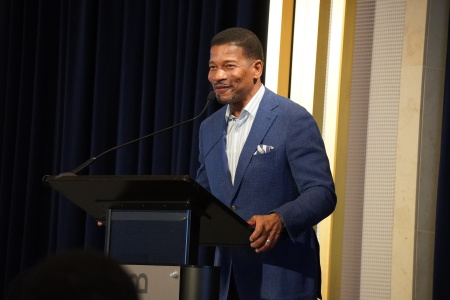
On the way, the boys heard the sound of children’s laughter. Jenkins and his 9-year-old and 11-year-old cousins followed the sounds from behind the trees.
After getting past all the greenery, the three boys discovered a swimming pool. After removing their shirts and sneakers, the three jumped in the pool. Jenkin’s said he remembers the water was refreshing on that hot day in South Georgia.
The boys swam for a few moments, and then they noticed everything had gone silent.
“I looked around and saw a look of contempt on the adults’ faces,” Jenkins told the audience.
He and his cousins didn’t understand what was happening, and they continued to play until the police arrived.
“The cop said: ‘You nig*** get out of that pool,’ and we got out,” Jenkins recounted.
“At 7 years old, my No. 1 hero was my dad, my No. 2 hero was Batman and Robin and my No. 3 hero was Superman, and my No. 4 hero were policemen,” Jenkins explained.
“The policeman cursed at us, and while he was yelling, my cousin looked away, and he slapped my cousin. And he said: ‘Boy, when I’m talking to you, you look at me. You see those people sitting at the pool. They can’t swim anymore because you contaminated it,’” Jenkins recalled.
Jenkins said his parents didn’t come to their defense when they found out what happened.
“My parents said: ‘You weren’t supposed to there. It was a whites-only park,’” Jenkins recalled. “We didn’t know that there was a difference between a black park and a white park.”
As an adult, Jenkins said his fear of police officers stayed with him. But eventually, as a pastor, he knew he needed to overcome his “trauma.”
“I would nearly have a panic attack whenever a policeman pulled behind me, so I did something. I invited the white police chief of our town to come to my church to build a relationship with him,” Jenkins told the audience.
“It was incredible what the Lord did in our relationship. We became good friends. And the police chief said: ‘Lee, if you see anything we’re doing that is not conducive for racial unity, would you let me know?’”
“Don’t let negativity keep you from doing what’s right in God’s eyes,” Jenkins concluded. “It is worth it to push through pain because you’ll see change.”
‘Recovering racist’
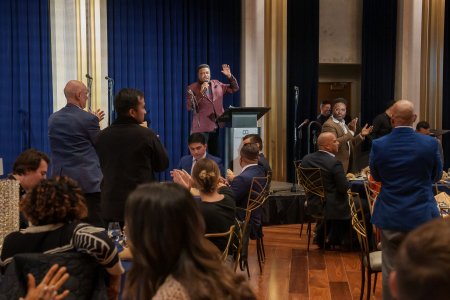
Bishop Kenneth Ulmer, a black pastor of Faithful Central Bible Church in Inglewood, California, and the presiding bishop of Macedonia International Bible Fellowship, also attended the gathering.
“I am a recovering racist,” the 73-year-old bishop said after joking that he is the oldest pastor in the room and mentioning that he will soon turn 74.
Ulmer said at the age of 10, he was the only black piano student at his music school. He said he’ll never forget when all the music students, including himself, were supposed to go on a boat for a school trip to an amusement park.
On the day of the field trip, Ulmer’s parents tried to walk him onto the ship, but a police office and the ship’s captain wouldn’t allow him to board.
“The big white cop said, ‘where y’all going?,’ And my mother said, ‘we are going on the Admiral [ship].’” And he said, ‘Not today you ain’t.’ And then the captain took his finger and put it in my daddy’s face and said, ‘We don’t let nig**** on this boat,’” Ulmer recounted.
“Imprinted in my mind today was when I looked up at my daddy and I saw the look on his face when that white man put his finger in his face. It branded my spirit.”
Another memory that Ulmer detailed is when he was staying at a hotel in Dallas, Texas.
While standing outside the hotel to wait for his baggage, a white woman walked up to him and handed him her car keys, and she said: “Take care of my car, boy.”
With his experiences having had a lasting impact on his life, Ulmer credits God with changing his heart so that he is no longer a racist. He didn't specify what exactly made him a racist.
“I’m a recovering racist. But, I’m a testimony of what God said when He said, ‘He will take out your old heart and put in a new heart,’” he said.
As the event continued, more black pastors shared their accounts. White leaders also took the stage to express empathy and recognition that “racism exists and should be stopped.”
National television host of “Destined to Win,” Rev. Frank Santora was among the white faith leaders in attendance. He is the lead pastor of the multi-campus Faith Church.CC in New York.
Santora, who is of Italian descent, said he believed he needed to apologize to people who look like him for the history of racism in America.
“I hope this doesn’t come across as too sensational. My objective is to be compassionate,” he said. “I believe something needs to happen for reconciliation, and that’s an apology.”
“We often hear: ‘why should anyone living today apologize for things they weren’t part of.’ And to that, I say, let’s look at Jesus, who was a representative man. Because of Christ, reconciliation was brought to the world,” Santora proclaimed.
“And so, on behalf of people that look like me, I want to apologize to people who don’t look like me for all of the injustices that have happened in the past and continue. I pray this can begin the healing process in some hearts,” Santora stressed.
The New York pastor said he has never been on the receiving end of racism, but he has seen it happen to others.












